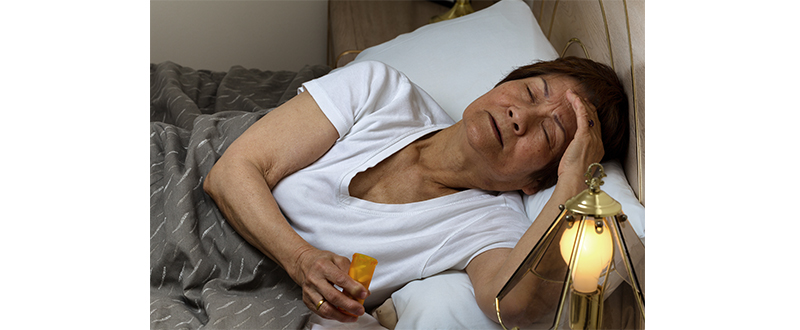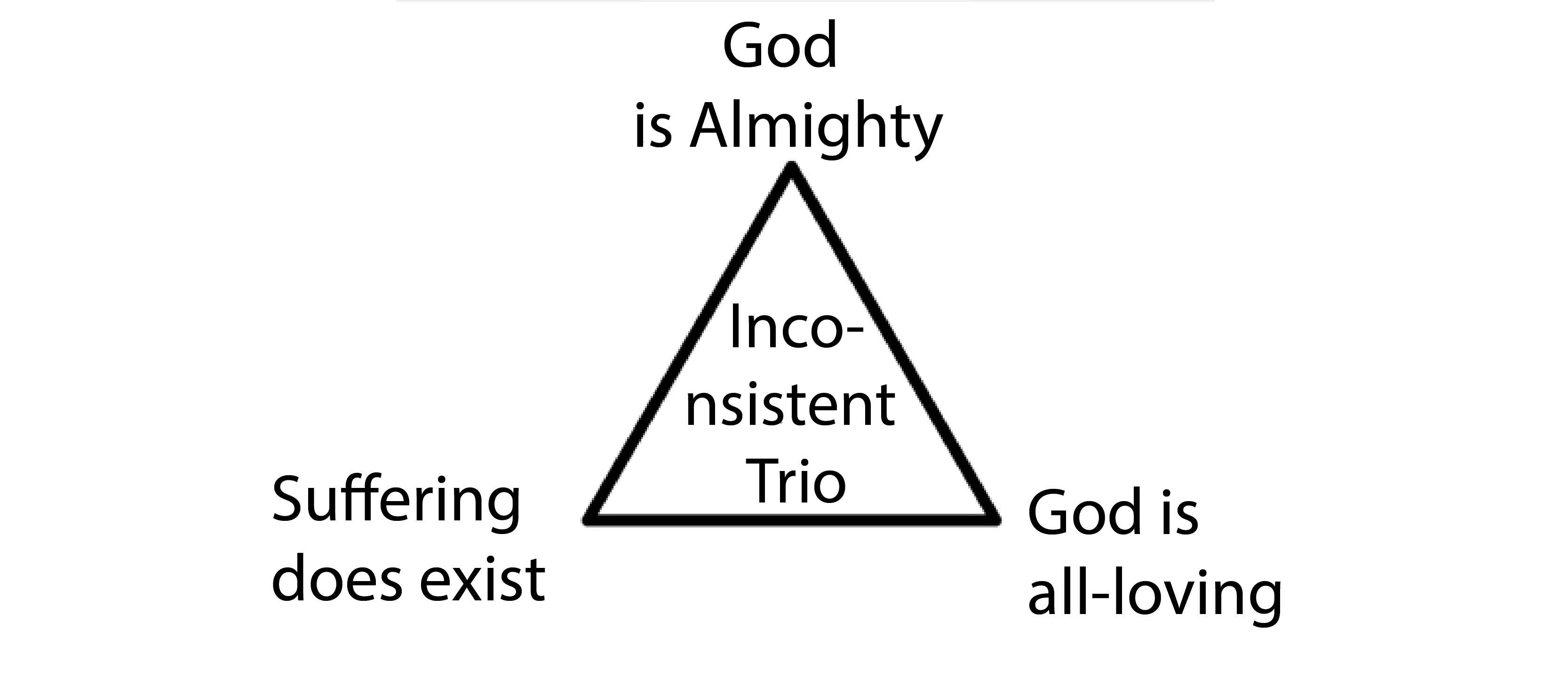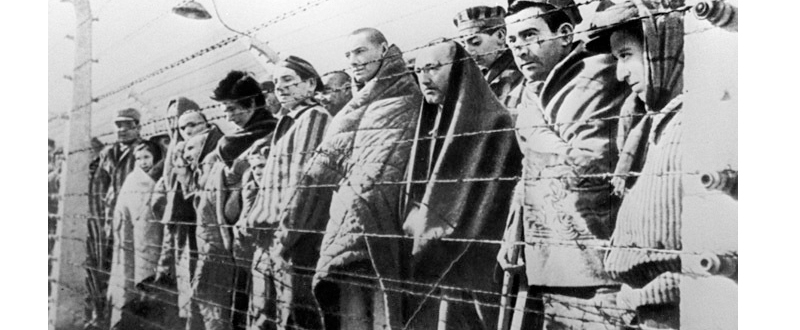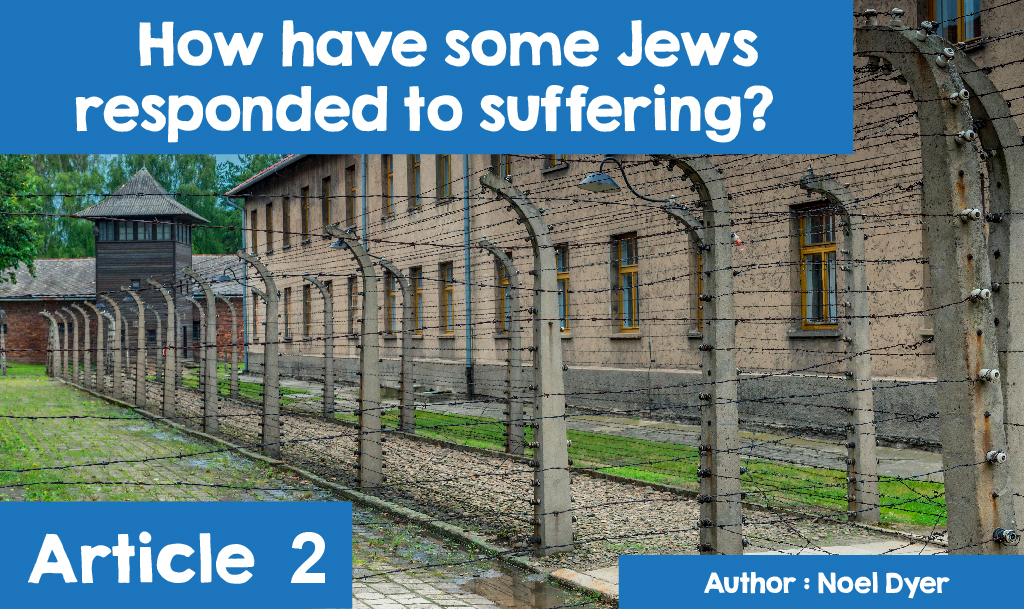How have some Jews responded to suffering?

Why is my grandmother sick? Why can't some people walk? Why do people die? Very common questions that children of all ages have asked their parents. Questions that are very difficult for any parent to answer, and questions that do not get any easier as we get older. Questions that have also caused problems for religions throughout the centuries - how to reconcile the existence of God with the existence of pain and suffering. If religions teach that a good God created the world out of nothing, then how can there be things in that world that are bad? And if religions teach that the same God created humans, then why do they suffer? A man by the name of J.L.Mackie called this an inconsistent trio.

If God is Almighty, he can do everything; if God is All-loving then he does not want to see anyone suffer; therefore, if God can stop suffering and wants to stop suffering, then why does suffering exist. According to Mackie, it is not possible for the three statements to co-exist - one has to be wrong. But which one? It is clear that suffering exists, therefore, … and that is the problem facing some of the great religions of the world.
Judaism is a religion that has experienced a great deal of suffering as part of its history and, therefore, the questions about suffering are very relevant. Judaism teaches that God is good and that this is clearly shown in the kind of world he created. In the Ten Commandments he gave to help people live in a fair society, and in the fact that he had saved the Jews many times in their history. Jews believe that suffering ultimately comes from free will. When God created people, he gave them free will so that they could choose to worship him or not. People are, therefore, free to make decisions, and those decisions can have good or bad consequences. However, Jews also believe that suffering can come from God and that God uses suffering as a means of disciplining, punishing for wrongdoing, proving, or forcing someone to return to God.
.jpg)
© Bible_Illustrations by Sweet Media
Jews believe that the good and the bad should be welcomed in their lives in the same way as they are both sent by God, and both have a purpose. Job’s story shows that for no reason, a good person can go from great success to great suffering. Job's friends thought he was suffering from some evil he had done in the past. When Job asks God, he does not receive direct answers, but God challenges him as to why he doubts him. Job has to accept that God is in control, although he does not understand why he has to suffer and, because God is good, he should not be doubted.

© RIA Novosti
However, one event changed the way many Jews now view suffering. That event was the Holocaust. Holocaust is the term used to denote the murder of six million Jews by the Nazis during World War II. Jews refer to it as 'Shoah', which means ‘disaster’. In 1933, the Nazi Party won the German election and Adolf Hitler became the country's Chancellor, from which time the problems of German Jews increased, laws were passed against them, their businesses closed and they were banned from mixing with Germans. Things went from bad to worse with the outbreak of World War II, not only for German Jews but for all Jews in Europe. The Nazis embarked on what they called the Final Solution to the Jewish problem. the Jewish population in many countries was forced to live in 'ghettos' until they were sent to extermination camps, and their only purpose was to murder. The largest of these camps was Auschwitz and Jews were sent from all over Europe to be killed in the gas chambers. It is estimated that two million people were murdered in Auschwitz.
The events of the Shoah raised a number of questions about suffering, with the intention of trying to make sense of the events - some by following the traditional teachings and some by challenging it. For some, we must accept that God has a purpose in allowing the Holocaust and that God's ways cannot be completely known. However, such a response does not satisfy a large number of Jews. In his book, 'After Auschwitz’, Richard Rubenstein argues that after the events of the Nazi period, it is not possible to believe in an Almighty God. One of the Holocaust survivors was Elie Wiesel. After the Holocaust he could not return to the God of his childhood. His faith began to weaken shortly after his imprisonment in Auschwitz and he began to doubt God. One event that really affected him was the sight of two adults and a child being hanged by Nazi guards. He records the incident in this way - 'Behind me I heard the man ask - "Where is God now?" and I heard a voice from inside me answering: "Where is he? Here he is - he's hanging on these gallows."
However, not all responses to the Holocaust are as despondent as Elie Wiesel's. For some, following their religion, even in the appalling conditions of the extermination camps was a way of challenging the system and believing in God became the key to their survival. Eliezer Berkovitz argues in his book, 'Faith after the Holocaust', that religious belief is possible even after the horrific events of the Holocaust. The Holocaust was evil, a tragedy caused by the Nazis due to free will. God does not intervene because he does not want to limit the free will he has given people. For Berkowitz, the fact that the Jews survived the Nazis, shows the presence of God.
January 27th commemorates the day when the Red Army forces liberated the Auschwitz-Birkenau extermination camp in 1945. The date also marks Holocaust Memorial Day, which is an important opportunity to reflect on the Holocaust, as well as on genocide and ethnic cleansing elsewhere in the world, such as in Myanmar / Burma, Kosovo and Ruanda.
The Holocaust Educational Trust is organizing events around the UK to mark Holocaust Memorial Day and this year they are encouraging schools to sign up to take part in a live webcast with Harry Spiro BEM and Judge Robert Rinder, where both will be discussing the Holocaust. Harry Spiro survived the Nazi concentration / extermination camp system and all but one of Robert Rinder's father's family sides were killed during World War II. The webcast will be broadcast between 10:00 and 11:00 on Thursday, 24 January - your school can register to be a part of it online at www.het.org.uk/survivor-testimony-webcast. It is important that we never forget the crimes against humanity during World War II and that we make sure that the same thing does not happen again.
A memorial event will be held at Llandudno’s Emanuel Christian Centre on Sunday, January 27 at 19:00 to mark this year's Holocaust Memorial Day. Hungarian Holocaust survivor, Susan Pollack MBE will be the guest speaker at the event.
There are other events across Wales and the UK. You can find out if there are ones local to you by clicking here https://www.hmd.org.uk/take-part-in-holocaust-memorial-day/activities/.


